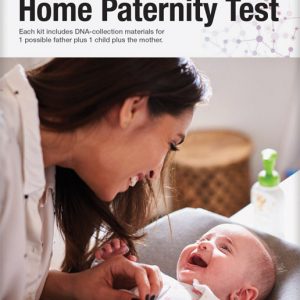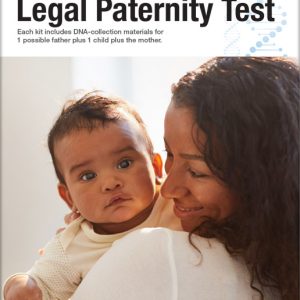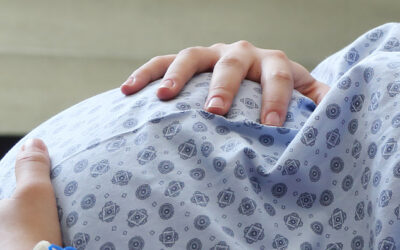
Paternity testing by a reputable laboratory is a complex yet highly accurate process that helps establish the paternity of a person through DNA testing. By identifying the true biological father of a child, paternity testing provides clear evidence that can often be used in a court of law and give peace of mind. This blog post answers common questions about how DNA testing is performed when the possible father isn’t available for testing or is unwilling to participate.
It’s possible to perform a DNA paternity test without the father’s direct involvement. One way is to test the father’s parents or his first-degree relatives. Another method is to utilize non-standard samples, like hair clippings or a used ear swab, from the father. But for the court to recognize the validity of the results from a legal standpoint, a chain-of-custody form authorizing the procedure must be signed and processed.
Paternity Testing Can Be Done without the Father’s Knowledge
A paternity test conducted without the possible father’s knowledge is called a “non-legal” paternity test. DNA tests can be conducted without the father knowing, but the results are strictly for personal information and cannot be used in a court of law. An outside laboratory can help advise a person on the type of testing material/evidence that needs to be collected from the possible father and child. Once samples are collected, they are sent to the lab for analysis.
Can the Father Refuse DNA Paternity Testing?
The possible father of a child has the right to refuse a court-ordered DNA paternity test, although he’ll face legal consequences for doing so. DNA testing is typically considered a civil lawsuit, so a judge can force the father to submit a sample to a court-approved facility. If the father refuses to take the test at this point, he can be held in contempt of court, which can lead to legal consequences such as fines and criminal charges.
If a paternity suit gets filed, the court won’t necessarily force the possible father to take a paternity test immediately. The court will review the facts of the case first, and if there’s enough information to warrant a paternity test, the court will issue the order for the test.
Paternity DNA Testing When the Father Is Deceased
For cases in which the possible father has passed away, several options are available to help verify paternity. For the following relationship tests, involving the child’s mother increases the accuracy of the results.
Grandparent Test: When the father is deceased, this test can determine the statistical probability of whether or not the possible grandmother and/or grandfather is biologically related to tested children.
Sibling: This test determines whether two individuals share one or both parents. Although an indirect way to prove or disprove paternity, it’s one option when the father is deceased. This test can also be used for half-siblings. The mother must provide permission for full or half-siblings aged 16 and younger to participate.
Aunt-Uncle: Called avuncular testing, this is another option when the father is deceased, because uncles and aunts share 25% of their DNA with their nieces and nephews.
Paternity Testing Using Hair or Other Non-Standard Samples
While non-standard samples such as hair or a toothbrush from the possible father can be used for testing, items such as discarded ear swabs or used tissue are better. If non-standard samples are the only option, reputable labs will work with the individual to ascertain the best possible sample for their specific situation. After the sample is received, the lab will generate the DNA profile of the possible father. If the sample is sufficient, this DNA profile is compared to the DNA collected from the child’s cheek swabs to determine paternity probability. Results from this process are typically available within 5 to 10 business days, but turnaround time may vary based on the quality of the sample.
How Accurate Is a DNA Paternity Test?
Since the 1980s, lab scientists have been able to test two people for a genetic match to confirm biological parenthood with 99.99 percent certainty. Since then, advances have been made in the underlying science and these methods have been rigorously tested, described, and proven in countless peer-reviewed journals. If you obtain a sample directly from the father (e.g., with a buccal cheek swab), test results provide a 99.9999 percent probability of paternity or higher as long as they aren’t contaminated.
Results from legally binding chain-of-custody paternity tests are recognized in courts worldwide as proof of paternity. The method in which samples are collected is the most important single factor to ensure accuracy and legality. When being tested, mothers and named fathers must present a valid ID, follow and sign the chain-of-custody authorization, and their samples must be securely attached to their IDs.
Can You Contest the Results of a Potentially Falsified DNA Test?
In some cases, even accurate DNA test results can be contested. Here are a few situations in which this can happen:
- Results are thought to be fraudulent
- Conclusive evidence shows the possible father is sterile/infertile
- Clear evidence indicates someone has tampered with the lab results
How Many DNA Paternity Tests Are Done Each Year?
A study published by the National Institutes of Health in 2006 indicated 300,000 paternity tests were performed each year in the United States. A 2009 article in The New York Times reported that the number of paternity tests taken annually had increased to more than 400,000. The article also noted that men who questioned whether they were the biological father of the child were found to not be in an estimated 30 percent of cases. And data from the AABB suggested the number of paternity tests performed annually was closer to 500,000, with the majority requested by child support agencies.
Getting Started with DNA Diagnostics Center
DNA Diagnostics Center (DDC) processes more paternity and relationship tests than any other service worldwide. Moreover, DDC specializes in determining relationships in complex situations, including when the possible father is unavailable for testing. Each year, we process more than one million samples at our state-of-the-art laboratory outside Cincinnati, Ohio from individuals and government agencies around the world. Here are a few other things that set DDC apart from less reputable DNA testing labs:
- FREE consultation to determine the right test for your needs
- The most trusted name in paternity and relationship testing
- Fast, accurate, PhD-reviewed results delivered directly from our laboratory
- Friendly, knowledgeable support team to ensure your complete satisfaction
Bottom line: Paternity tests are an essential tool for proving paternity in divorces and other legal cases and also provide peace of mind.






0 Comments